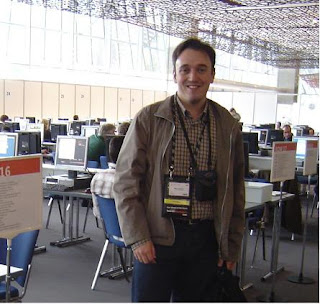Recently, Mario Romano and me did a presentation about Language Trends, focusing on Linq and the .NET framework. It's clearly a trend in .NET, and there are some great blogs about FP in .NET:
This one focuses more on Lisp, Haskell and other FP languages, but gives an hand to us imperative programmers:
http://www.defmacro.org/rss/news.xml
My main problem is applying this to practical day to day examples. I've seen many examples of the Fibonnaci, Hanoi Towers and others that are great to get your hands on code, and I can relate to the advantadges of FP (composability, restriction on side effects, conciseness/terseness?).
But I think that to convert more people (or at least look) to FP, there has to be some compelling examples that clearly show the advantadges. Maybe related to Web programming (continuations), or meta-programming (get rid of code generators/copy-paste and with the aid of expression trees and higher order functions, define the basic skeleton of methods - try , validate, call some function passed in, log exception, commit, rollback).
Any good examples/ideas?

2 comments:
Why don't your try this one: http://www.amazon.com/Foundations-F-Experts-Voice-Net/dp/1590597575?
Check the index at http://devcatharsis.blogspot.com/2007/10/next-language-ill-put-my-hands-on-will.html
The haversack of a lv"
. As for louis vuitton
, the designers acquire their own casting value, even for their louis vuitton handbags
. Louis vuitton bags
is so constant and acquire able adeptness for water-proof and fire-proof.
Post a Comment